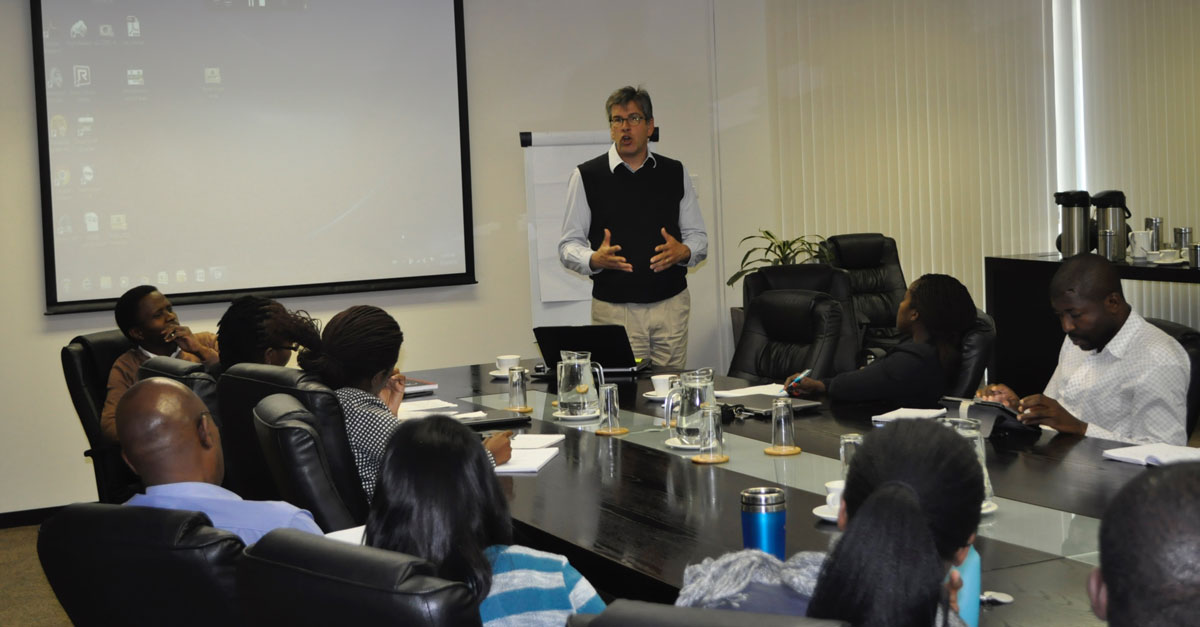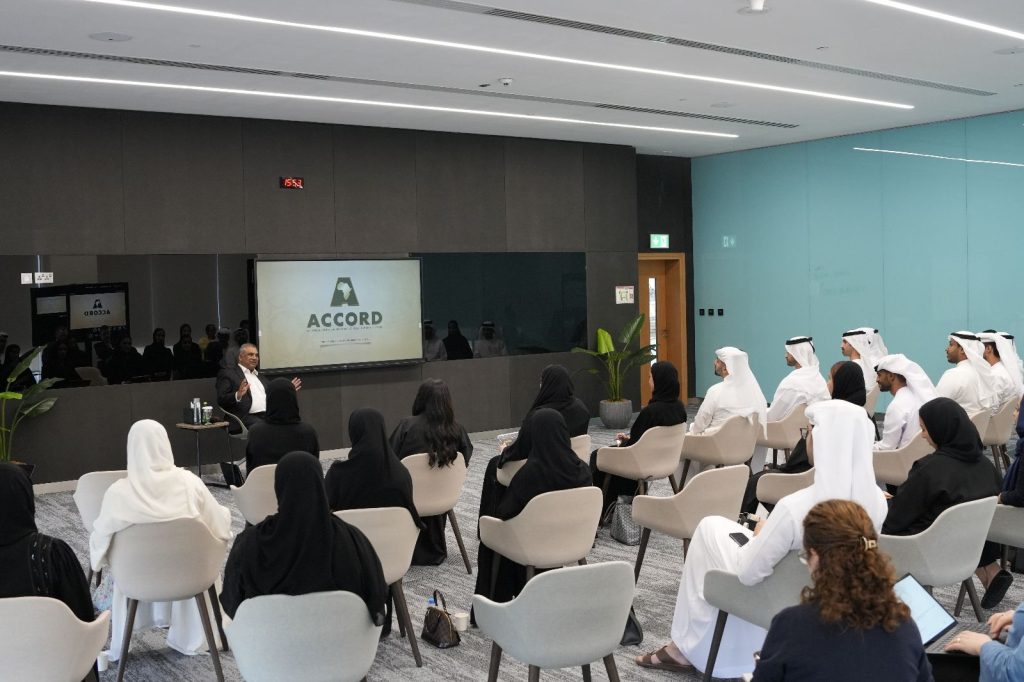Following the 27th African Union (AU) summit that took place in Kigali from the 10th to the 18th of July 2016, the African Centre for the Constructive Resolution of Disputes (ACCORD) hosted an internal staff seminar where Dr Cedric de Coning, advisor to the High Representative of the Peace Fund, and Dr. Donald Kaberuka, delivered a presentation on the decisions of the AU Summit on financing AU operations and programmes and the Peace Fund. Dr de Coning is Senior Advisor on Peacekeeping and Peacebuilding for ACCORD. He is also a Senior Research Fellow in the Peace Operations and Peacebuilding Research Group at the Norwegian Institute of International Affairs (NUPI).
In his presentation, Dr de Conning provided a breakdown of the AU budget that comprises of three categories:
- Operational Budget which covers staff costs, operating expenses, statutory meetings, and selected top priority programmes / projects;
- Programme budget which covers the remaining programme cost financed through donor contributions; and
- Peace Support Operations budget which provides necessary financial resources for peace support mission and other operational activities related to peace and security.
Dr de Coning highlighted the financial challenges faced by the AU. He emphasised that effective and successful implementation of the AU’s programmes requires adequate, predictable and sustainable funding. However, the AU continues to be underfunded by its Member States, with a 30% rate of non-payment and Member States’ contributions are regularly not made on time. These factors have led to accumulated arrears, which have led to the depletion of the reserve fund of the Union, and have for years crippled and constrained the efforts and momentum of the continent.
Dr de Coning also stated that in recent years, the scope and magnitude of the work of the AU’s organs has expanded, as a result of increased demands to respond to the challenges on the continent. In support of these increased demands, the AU’s expenditure has been increasing annually. As a result, the 27th AU Summit, held in Kigali Rwanda in late July 2016 considered potential solutions in order to address the funding challenges that the AU has faced since its inception. At the Summit, the need for a move towards self-reliance and sustainable funding for AU operations and programmes was at the top of the agenda. This was identified as a means to reduce the impact of over-reliance on external funding.
On the Funding of the AU, the Member states historically agreed on the following:
- A 0.2% levy would be implemented on all eligible imported goods into the Continent to finance the Operating, Programme and Peace and Security budgets starting from 2017;
- That the amounts collected from the levy shall be automatically paid by the national administration, into an account opened for the African Union with the Central Bank of each Member State for transmission to AU in accordance with each member State assessed contribution;
- That the Commission shall put in place a strong oversight and accountability mechanisms for ensuring the effective and prudent use of resources; and
- That the on-going institutional reform of the AU to ensure a more effective attainment of the objective of the Union and prudent use of all resources be completed.
To operationalise the Peace Fund in order to finance the peace and security operations of the Union, the Member States agreed that:
- The Peace Fund shall be endowed from the 0.2% levy, with an amount of USD 325 million in 2017, rising to USD 400 million in 2020. This total amount shall be raise from equal contributions from each of the five regions (USD 65 million per region in 2017 and USD 80 million per region in 2020) of the AU.
This decision is a stepping stone towards achieving the goal of financing 25% of the cost of the AU peace support operations in fulfilment of the commitment by the Heads of State and Governments made in 2015. A levy on imports was chosen as it is more practical and impacts all sectors of the economy, and therefore is more equitable.
In addition to the financial commitments made, 3 thematic windows were adopted for the Peace Fund, namely:
- Mediation and Preventative Diplomacy;
- Institutional Capacity;
- Peace Support Operations;
Non-financial aspects were also decided upon in relation to the Peace Fund, namely:
- Decision-making processes to be finalised for seeking assessed contributions for AU Peace Support Operations
- Consultations to be held with the United Nations (UN) on envisaged funding from UN assessed contributions for the remaining 75 % of the cost of peace support operations,
- AU to provide a clear human rights and code of conduct compliance framework for Peace Support Operations.
Dr de Coning concluded his presentation on an optimistic note, highlighting that Member states were in agreement on the recommendations provided for the funding of the AU operations and programmes. This could very well turn out to be a watershed moment in the history of the AU and the continent, empowering and capacitating efforts to move forward.
The Knowledge Production Department at ACCORD organises regular internal staff seminars on pertinent and timely topics to facilitate discussion among staff members on a variety of security, peace and development topics. ACCORD Internal Staff Seminars contribute to the institution’s research and knowledge-sharing work which aims to encourage members of staff to engage around current affairs and the multi-dimensional facets of African geopolitics. ACCORD’s work contributes to peace and security by supporting the development and implementation of effective conflict prevention and resolution activities, which necessitates a comprehensive understanding of the continental policy theatre in order to promote sustainable development across the African continent.
For more information on the work of ACCORD’s Knowledge Production Department contact Charles Nyuykonge, Senior Researcher, Knowledge Production Department, at charlesn@accord.org.za








